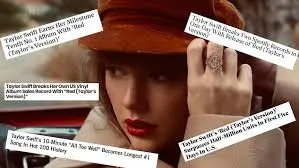In the whirlwind of the 2010s, the arena witnessed the meteoric rise of fandom tradition. From the sprawling realms of the Marvel Cinematic Universe to the worldwide phenomenon of K-pop, fan groups conquered the virtual panorama. They wielded their passion through a myriad of mediums: fanart, fan theories, and the ever-popular fan fiction. Yet, beneath this fervent adoration lies a darker undercurrent.
Enter parasocial relationships – a curious phenomenon where one side fosters a profound sense of connection with someone they’ve never met. Typically, it’s celebrities and media personalities who find themselves unwitting participants in these one-sided emotional entanglements.
What sparks these peculiar bonds remains a puzzle to psychologists. Some attribute it to the brain’s innate craving for social interaction, amplified in an era dominated by screens and online avatars. Others point to loneliness as the catalyst, with research indicating that those starved for companionship seek solace in virtual connections.
Forbes Health delves deeper, identifying social-emotional needs, escapism, media exposure, and the illusion of friendship as key ingredients in this curious cocktail. Angela Amias, a seasoned social worker, notes the allure of these relationships lies in their perceived safety, shielding individuals from the risks inherent in genuine human connections.
But not all is rosy in the realm of parasociality. Celebrities like Eminem have sounded the alarm, highlighting the darker sides of fan obsession. His iconic music “Stan” paints a chilling portrait of a fan descending into madness, underscoring the dangers of unchecked idolatry.
Yet, not all students view parasocial relationships through the lens of pathology. Rivkah Groszman challenges the prevailing narrative, likening celebrities to service providers fulfilling the desires of their consumers. Drawing parallels between a barista’s memory of complex order and a K-pop idol’s fleeting interaction with a fan, Groszman invites us to reconsider our judgments.
The belief in “fan service” emerges as a critical subject matter in this problematic tapestry. In the sector of K-pop, idols navigate a delicate dance, catering to the whims of their adoring fans to hold their lofty fame. BTS chief RM affectionately dubbing his fans as his “fans” exemplifies this symbiotic relationship, blurring the strains between fable and truth.
However, the dark aspect of fandom rears its head in Otegha Uwagba’s harrowing account. What begins innocuously on social media spirals into a nightmare of relentless messages and unwanted interest. Uwagba’s ordeal serves as a stark reminder of the perilous consequences of unchecked devotion.
Tragically, a few memories result in tragedy. From John Lennon to Selena Quintanilla-Pérez, the threat of parasocial relationships looms huge, claiming lives in its wake. It’s a sobering reminder of the risks posed via unchecked obsession.
As we navigate this complicated panorama, one element remains clear: barriers are paramount. Instead of succumbing to the charm of parasocial bonds, fostering wholesome connections within our communities gives a more secure, extra-pleasing opportunity.
Are Parasocial Relationships Healthy? Exploring the Intricacies of Fandom Culture
Relationship aficionado Sarmad Khan has a deep fascination with unraveling the secrets and techniques of human nature, mainly in love relationships. Equipped with a Psychology diploma, he explores the subtleties of conversation and body language, imparting readers with enlightening insights to assist them make feeling the elaborate global of relationships. Sarmad Khan enjoys traveling and taking pictures, which serves as a proposal for his subsequent writing mission when he’s not reading social clues.
Review:
Have you ever located yourself misplaced inside the charming international fandom tradition, wherein admiration for celebrities transcends mere enjoyment? As a pro psychologist, I’m intrigued by the complex dynamics of parasocial relationships, wherein people form one-sided connections with media personalities. This phenomenon, at the same time as reputedly harmless, can have profound implications for both enthusiasts and celebrities alike.
Reflecting on my studies, I don’t forget a time after I became enamored with a celebrity chef, eagerly devouring every episode of her cooking show and following her social media debts religiously. In my mind, I felt a proper connection with her, no matter in no way having met in character. It was only when I stepped again and severely examined my feelings that I realized the intensity of this parasocial bond.
Recent research supports the notion that parasocial relationships stem from a variety of things, inclusive of loneliness and the innate human preference for social connection. A survey carried out using the Journal of Social and Personal Relationships discovered that people who said better ranges of loneliness were more likely to engage in parasocial interactions as a way of filling the void in their lives.
However, as with any dating, there are dangers involved. Celebrities regularly find themselves receiving excessive scrutiny and obsession from enthusiasts, blurring the traces between admiration and threatening fixation. Tragically, a few celebrities have fallen sufferer to the darker side of parasocial relationships, with incidents of stalking and harassment making headlines way too frequently.
Despite the ability pitfalls, it is critical to apprehend that now not all parasocial relationships are inherently dangerous. For many fanatics, these connections function as sources of comfort and notion, imparting a sense of belonging in a more and more digital global. It’s essential, however, to maintain healthful stability and set up barriers to prevent these relationships from spiraling out of manipulation.
In conclusion, the phenomenon of parasocial relationships sheds light on the complexities of human interplay within the digital age. By informing the underlying motivations and implications, we can navigate those relationships with greater recognition and mindfulness. After all, at the same time as our admiration for celebrities can be boundless, it’s vital to not forget that they’re humans deserving of recognition and autonomy.
Reference:
A survey conducted by the Journal of Social and Personal Relationships: Link

Sarmad Khan is an experienced writer and dedicated educator with a thorough knowledge of human communication and relationships. With a background in psychology, Sarmad digs into the complexities of love and connection, providing significant insights to readers seeking heartfelt counsel. Sarmad’s fascinating anecdotes and considerable expertise seek to encourage folks to manage their love journey confidently.
